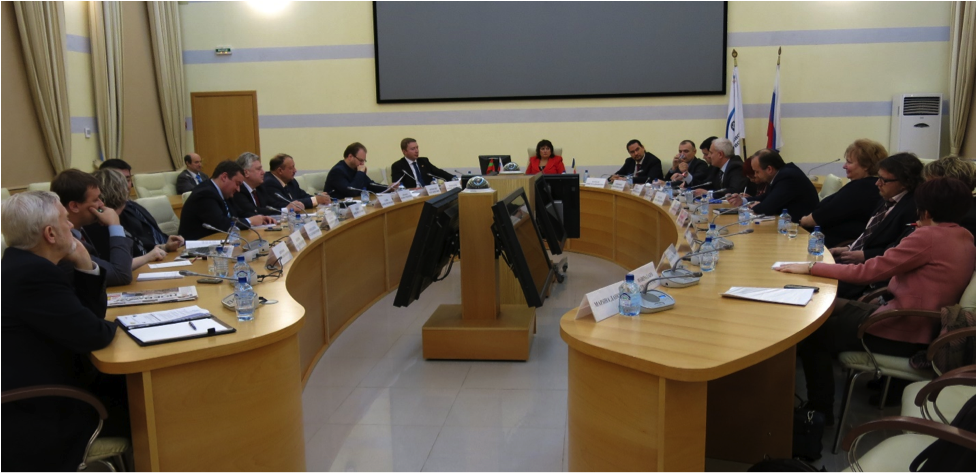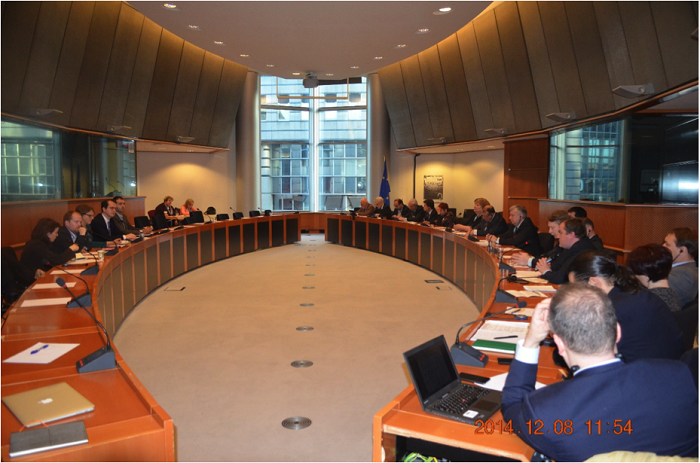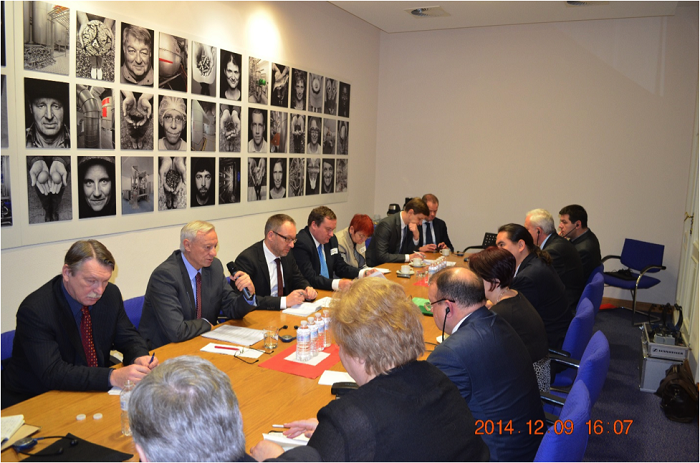CMI high level expert dialogue group members discussed Transdniestrian settlement in Moscow and Brussels
CMI high level expert dialogue group members discussed Transdniestrian settlement in Moscow and Brussels
On 3-10 December, CMI organised a visit to Moscow and Brussels for members of its high level expert dialogue group on Transdniestrian settlement from Chisinau, Tiraspol, Moscow, Brussels and Washington. The purpose of the visit was to organise discussions with official and expert interlocutors, as well as joint events, focused on the policy of the Russian Federation and the EU towards the Republic of Moldova and Transdniestrian settlement.
In the framework of this visit, CMI organised on 4 December in Moscow a round table event in cooperation with the Russian International Affairs Council (RIAC) to discuss ways forward for the Transdniestrian settlement in the context of the downturn in Russia-EU relations (more information at: Round table at RIAC on 4 December). While in Moscow, the experts held bilateral meetings with:
- Amb. Vasily Likhachev MP, Member of the State Duma, Member of the Duma Сommittee for CIS Affairs, Eurasian Integration and Relations with Compatriots;
- Deputy Director of the Russian Institute for Strategic Studies (RISS) Tamara Guzenkova and staff of the RISS; and
- Senior members of the Expert Council of the International Affairs Committee of the Federation Council (Senate) of the Federal Assembly of the Russian Federation – Aleksandr Mineev, Executive Secretary of the Expert Council and Tatyana Parkhalina, Deputy Chair of the Expert Council.

Meeting with RISS experts
The meetings were followed by a joint conference organized by CMI, the Institute of Europe of RAS (Russian Academy of Science) and the AES (Russian Association of European Studies) entitled “In Search of Joint Responses to Threats and Challenges to European Security” (more information at: Conference on 4 December).
The high level experts’ visit continued in Brussels, where bilateral meetings were held with EU and OSCE officials and Members of the European Parliament, including:
- Heidi Hautala MEP, Chair of the European Parliament Delegation to the Euronest Parliamentary Assembly, Vice-Chair of the Group of the Greens/European Free Alliance;
- Andi Cristea MEP, Chair of the Delegation to the EU-Moldova Parliamentary Cooperation Committee, Member of the Group of the Progressive Alliance of Socialists and Democrats;
- Luc Pierre Devigne, Head of Unit “Trade aspects of European neighbourhood policy. Trade relations with countries of the CIS and Balkans” of the DG TRADE of the European Commission;
- Members of the Permanent Representations to the EU of Finland, Germany, Poland, Romania and Spain;
- Amb. Dirk Schuebel, Head of Eastern Partnership Division, European External Action Service (EEAS) and members of his team;
- Amb. Radojko Bogojevic, Special Representative of the Swiss OSCE Chairperson-in-Office for the Transdniestrian settlement process and members of his team,
- Hanna Jahns, Advisor to Johannes Hahn, Commissioner for Neighbourhood Policy and Accession Negotiations;
- Amb. Pirkka Tapiola, Head of the Delegation of the European Union to the Republic of Moldova.

A lively discussion at the European Parliament.
In the framework of Brussels visit, the experts also participated in the Conference on “Security Challenges and Conflict Resolution in Eastern Europe”, organised by CMI in cooperation with the European Policy Centre (EPC) and with the support of the Swiss OSCE Chairmanship on 9 December (more information at Conference 9 December).

Meeting with Amb. Radojko Bogojevic, Special Representative of the Swiss OSCE Chairperson-in-Office for the Transdniestrian settlement process in the premises of the Mission of Switzerland to the EU
At the end of the visit, the group underlined the necessity to keep the same dynamic of its work next year, to hold further meetings with international interlocutors and to continue producing joint recommendations in support of the Transdniestrian settlement process.
This project is financed by the German Federal Foreign Office through project Zivik of the Institute for Foreign Relations (Ifa) and the Ministry for Foreign Affairs of Finland.